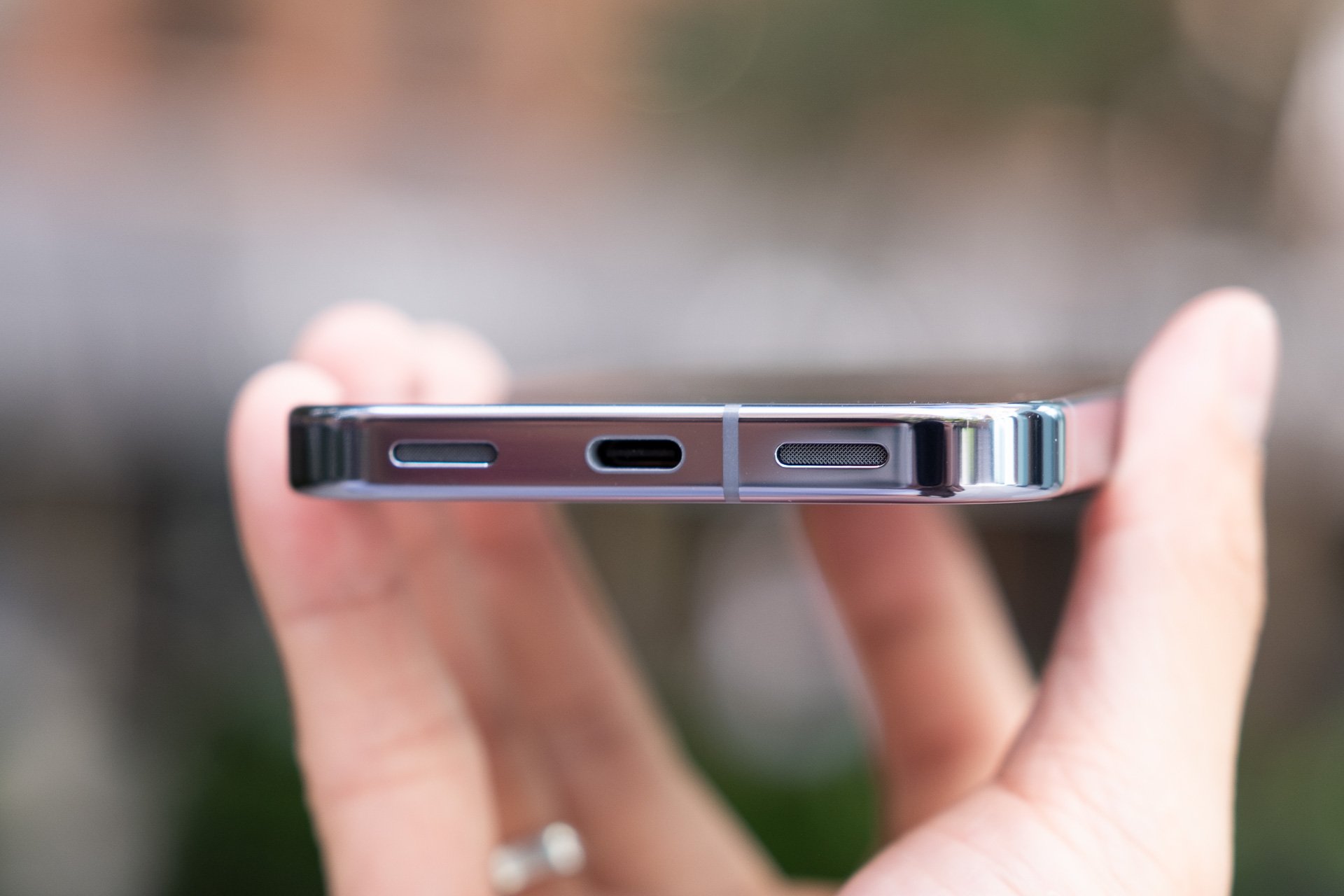
Pixel 10 Pro and 10 Pro XL Review: Familiar Hardware, Smarter Gemini AI Brain
For the better part of a decade, the smartphone industry has been locked in a cold war of incrementalism. Each year, we’re served a familiar cocktail of slightly faster chips, marginally brighter screens, and cameras that add yet another lens to an already crowded array. The physical evolution of the glass slab has slowed to a crawl. In this landscape of diminishing returns, Google has decided to play a different game entirely.
Enter the Google Pixel 10 Pro and the all-new Pixel 10 Pro XL. Unveiled at its annual October event, these phones are not a reinvention of smartphone hardware. In fact, from across the room, you might mistake them for their predecessors. But to judge them on their metallic shell would be to miss the point entirely. These devices are a bold, software-first manifesto, a declaration that the next frontier isn’t in the feel of the phone, but in its thoughts. The Pixel 10 Pro series is built on a single, transformative idea: the hardware is simply a vessel for the most advanced, deeply integrated AI assistant ever placed in a consumer’s hands. This is Google’s vision for the true “AI Phone,” and its brain is called Gemini.

The “If It Ain’t Broke” Design Philosophy
Placing the Pixel 10 Pro next to the Pixel 9 Pro, the lineage is undeniable. Google has settled into a comfortable and refined design language, and this year is about polishing, not rebuilding. The signature camera bar remains, but it’s sleeker, blending even more seamlessly into the recycled aluminum frame. The edges feel subtly softer in the hand, and the matte-textured glass back continues to be a joy to hold, resisting fingerprints with a cool indifference. The bezels have been shaved down by another fraction of a millimeter, pushing the gorgeous OLED display closer to the edge and making the device feel impossibly compact for its screen size. It is, by every measure, a beautiful and premium object. But it is also strikingly familiar.
The big story on the hardware front is the introduction of the Pixel 10 Pro XL. For years, Google has ceded the “big phone” territory to Apple’s Pro Max and Samsung’s S Ultra. The XL marks Google’s confident return to the arena. Boasting a massive 6.9-inch Super Actua display, it’s a content consumption powerhouse. The extra real estate not only makes videos and games more immersive but also provides a larger canvas for the AI’s new multitasking capabilities.
Both Pro models feature the latest generation LTPO OLED, capable of a silky-smooth variable refresh rate from 1Hz to 144Hz. They’re also phenomenally bright, hitting a peak of 2800 nits that makes the screen perfectly legible even in the harshest direct sunlight. While the XL model houses a slightly larger battery and a new, more capable 10x periscope telephoto lens, the core experience between the two is identical. Google’s message with this hardware is clear: we have perfected the vessel. It’s comfortable, capable, and reliable. Now, let us show you what it can do.
Under the Hood: The Tensor G5 and the Gemini Core
The engine driving Google’s AI ambitions is the new Tensor G5 chipset. If you’re looking for raw CPU performance to top benchmark charts, you’re still better off looking at Apple’s A-series chips. But Google isn’t competing in that race. The Tensor G5’s power lies in its radically redesigned Neural Processing Unit (NPU), a piece of silicon engineered for one purpose: to run powerful Gemini AI models directly on the device.
This is the key to unlocking the Pixel 10 Pro’s magic. Previous Pixels could run smaller AI models on-device for tasks like transcription, but the heavy lifting was always offloaded to the cloud. The Tensor G5, however, can run a sophisticated, multi-modal version of Gemini Nano 3 locally. This enables a new class of AI features that are instantaneous, privacy-preserving, and not dependent on a constant internet connection.
This on-device capability is managed by what Google is calling the “Gemini Core” of Android 16. This isn’t an app or a feature you turn on; it’s a foundational layer of the operating system. Gemini Core acts as an intelligent switchboard, processing as much as it can on the phone’s own NPU. For more complex queries that require the power of Google’s largest models, it seamlessly hands the task off to the full Gemini Advanced in the cloud without the user ever noticing the transition. This hybrid approach delivers the best of both worlds: the speed and privacy of on-device processing with the near-limitless power of the cloud. It makes the entire operating system feel alive, aware, and ready to assist.
Living with a Smarter Brain: Gemini in Action
All this talk of NPUs and hybrid models is meaningless without real-world application. So, what is it actually like to use a phone with a Gemini brain? It’s a paradigm shift from a reactive tool to a proactive assistant.
The Proactive, Anticipatory Assistant
The Google Assistant we knew was a powerful servant; you gave it a command, and it executed. Gemini is a partner; it anticipates your needs.
Imagine this scenario: an email from an airline with a flight confirmation for a trip next month lands in your inbox. On any other phone, you’d get a notification to add it to your calendar. On the Pixel 10 Pro, a quiet, unobtrusive notification appears: “Planning your trip to Seattle?” Tapping it opens a temporary dashboard Gemini has already built. It has cross-referenced the flight with your past travel and hotel stays, suggesting three hotels near the event venue you’re likely visiting, noting that one has a special rate available. It has already pulled the 10-day weather forecast for your arrival date and used it to generate a suggested packing list in Google Keep. It has even mapped the route from the airport to your likely hotel and pre-downloaded the area in Maps for offline use. It did all of this in the background, without a single voice command, turning a simple email into a fully prepared travel brief. This is the core difference: the Pixel 10 Pro doesn’t just manage your information; it understands it and acts on it.
“Real World” Camera Intelligence
Google’s computational photography has always been a Pixel hallmark, but Gemini elevates the camera from a capture tool to a creative one. Magic Eraser was just the beginning. The Pixel 10 Pro introduces “Cinematic Eraser,” a video feature that does the unthinkable. You can now select a person or object in the background of a video you’ve already shot—say, a tourist who walked through your perfect beach sunset shot—and Gemini will remove them, intelligently generating the background frames to create a seamless, uninterrupted clip.
There’s also a new real-time feature called “Director’s Eye.” While you’re recording a video, a small notification might pop up from Gemini’s on-device analysis: “Switch to 0.5x ultrawide for a more dramatic perspective,” or “Slightly pan left to improve framing based on the rule of thirds.” It analyzes your scene like a seasoned cinematographer, offering suggestions that actively help you capture better content.
After an event, the new “Narrative Photos” feature in Google Photos can take a gallery of 200 pictures from a birthday party and, with a single tap, turn it into a cohesive story. Gemini understands the context, identifying key moments like the cake, the gifts, and group shots, automatically culling duplicates, suggesting edits, writing intelligent captions (“Sarah blowing out the candles,” “The whole family together”), and even selecting a royalty-free music track that matches the event’s vibe to create a polished, shareable memory.
A Truly Conversational Operating System
The final piece of the puzzle is how you interact with the phone. Voice commands are no longer rigid. You can speak to the Pixel 10 Pro with natural, complex language. Holding down the power button brings up the Gemini interface, and you can say: “Find that presentation Sarah sent me on Gmail last week about the Q4 projections, pull out the three key takeaways, and draft an email to the marketing team summarizing them.”
Gemini’s “Core” kicks in. It understands the context, searches across your apps, opens the specific attachment, comprehends the data within the presentation, and then drafts a perfectly coherent email, all within seconds. The AI has full contextual awareness of what you’re doing. If you’re browsing a clothing website and see a jacket you like, you can invoke Gemini and ask, “Does this come in blue and can you find it cheaper anywhere else?” Without you needing to specify the product, Gemini scans the content on your screen, performs a visual search, and presents you with color options and a price comparison from other retailers. It transforms the entire phone into a single, searchable, and interactive database of your life.
Battery, Charging, and the Google Promise
With all this AI processing, battery life is a natural concern. Thanks to the efficiency gains of the 4nm Tensor G5 chip, the Pixel 10 Pro and 10 Pro XL manage to provide a solid “all-day” battery life that should comfortably get most users from morning to night. Heavy use of the most advanced Gemini features, particularly the video editing tools, will certainly drain it faster, but for a typical day, it’s more than adequate.
Charging gets a modest but welcome bump to 45W wired charging, which can take the phone from 0 to 50% in under 30 minutes. It also fully supports the new Qi2 wireless charging standard, ensuring compatibility with a new generation of magnetic chargers and accessories.
And, of course, Google’s industry-leading software support promise continues. The Pixel 10 Pro and 10 Pro XL are guaranteed to receive seven years of OS updates, feature drops, and security patches. In a world where hardware is iterating slowly, this long-term support makes the phone a smarter, more sustainable investment than ever before.
Conclusion: The Dawn of the AI Phone
The Google Pixel 10 Pro and 10 Pro XL are not for the spec-sheet warrior. They are not for the person who wants a radically new design to show off. This is a phone for people who want to do less—less searching, less organizing, less managing—and have their device do more. It’s a fundamental shift in the very purpose of a smartphone.
For years, we have served our phones. We meticulously organize our apps, we search for information, we tell the device exactly what to do. The Pixel 10 Pro, powered by its Gemini brain, is the first phone that truly feels like it’s serving you. Its familiar, comfortable hardware is the perfect stage for the real star of the show: an AI that is less of a tool and more of a partner. It’s a quiet, ever-present intelligence that smooths the rough edges of your digital life and proactively makes it better.
If you believe the future of personal computing lies not in raw power but in ambient intelligence, the Pixel 10 Pro isn’t just the best phone Google has ever made. It is the most compelling argument yet for the dawning of a new age: the age of the AI Phone.
